Cancer Risk
How to submit an article:
- Registered users can submit any published journal article that has a unique DOI (Digital Object Identifier) name or link to Research Hub.
- For example, you can paste the full DOI link:
https://doi.org/10.1109/5.771073or just the DOI name:10.1109/5.771073into the field above and click submit. - The person who is first to submit a valid article to Research Hub will forever be credited for it, and every article submission earns you +6 Research Points.
Related Topics
Published research studies are articles that present the findings of original research that has undergone a peer-review process and has been made publicly available in scholarly journals, books or other media.

Carrot intake is consistently negatively associated with cancer incidence: A systematic review and meta-analysis of prospective observational studies
2023 Dec 17 Critical Reviews in Food Science and Nutrition Ojobor CC, O’Brien GM, Siervo M, Ogbonnaya C, Brandt K
Meta-Analysis Systematic Review Cancer CarrotConsuming carrots can significantly decrease the risk of cancer.

Carrot Intake and Risk of Developing Cancer: A Prospective Cohort Study
2023 Jan 29 Nutrients Deding U, Baatrup G, Kaalby L, Kobaek-Larsen M
Cohort Study Cancer Lung Cancer Falcarindiol Leukaemia Cancer Risk Falcarinol Adenocarcinoma CarrotRegular consumption of raw carrots is associated with a significant, dose-dependent reduction in lung cancer incidence, suggesting a potential cancer-protective effect attributed to polyacetylenic compounds, particularly falcarinol and falcarindiol, present in raw carrots.
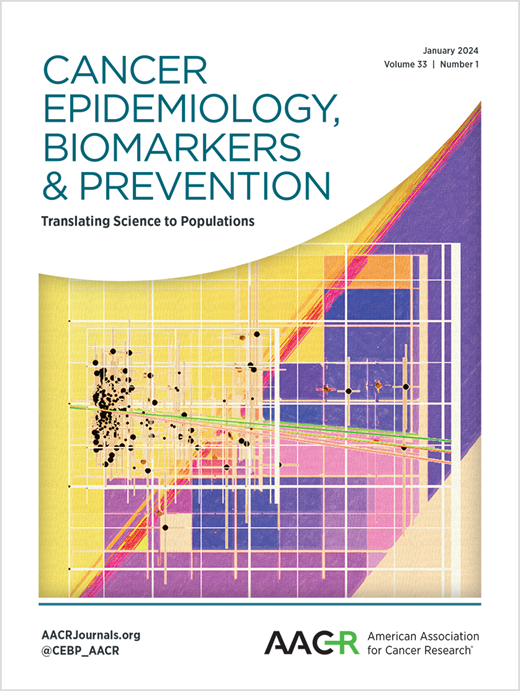
Nut Consumption and Risk of Cancer: A Meta-analysis of Prospective Studies
2020 Mar 01 Cancer Epidemiology, Biomarkers & Prevention Long J, Ji Z, Yuan P, Long T, Liu K, Li J, et al.
The analysis, including 33 prospective studies with over 50,000 cancer cases, revealed a significant inverse association between high nut consumption and the overall risk of cancer (RR = 0.90; 95% CI, 0.85–0.95). The protective effect of nut consumption was particularly notable against cancers of the digestive system (RR = 0.83; 95% CI, 0.77–0.89). Among different nut classes, a significant association was observed only for tree nut intake. The study also found a linear dose–response relationship, indicating that each 20 g/day increase in nut consumption was associated with a 10% decrease in cancer risk (RR = 0.90; 95% CI, 0.82–0.99).
Meta-Analysis Nuts Cancer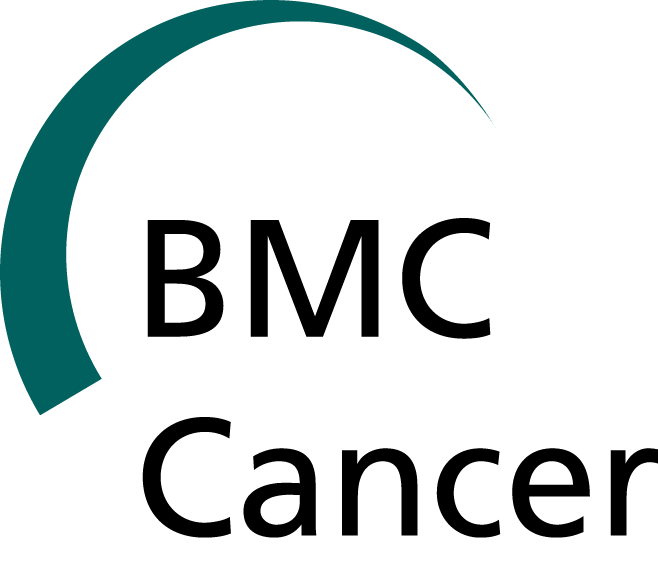
Coffee drinking and cancer risk: an umbrella review of meta-analyses of observational studies
2020 Feb 05 BMC Cancer Zhao LG, Li ZY, Feng GS, Ji XW, Tan YT, Li HL, et al.
Meta-Analysis Coffee Liver Cancer Endometrial Cancer Cancer RiskCoffee consumption shows a strong association with decreased risk of liver and endometrial cancer.

Ginger on Human Health: A Comprehensive Systematic Review of 109 Randomized Controlled Trials
2020 Jan 6 Nutrients Anh NH, Kim SJ, Long NP, Min JE, Yoon YC, Lee EG, et al.
Systematic Review Ginger Digestive Health Anti-Inflammatory Bowel Cancer Morning SicknessGinger has been effective in a majority of studies, including those that examined the alleviation of nausea and vomiting of pregnancy, digestive function, improvement in the expression level of markers for colorectal cancer risk, and anti-inflammatory functions.
Research insights are moderated by the Research Hub team and offer an at-a-glance overview of interesting research findings.

2023 Critical Reviews in Food Science and Nutrition
Consuming carrots can significantly decrease the risk of cancer.
Meta-Analysis Cancer Carrot
Carrot intake is consistently negatively associated with cancer incidence: A systematic review and meta-analysis of prospective observational studies
Ojobor CC, O’Brien GM, Siervo M, Ogbonnaya C, Brandt K

2023 Nutrients
Regular consumption of raw carrots is associated with a significant, dose-dependent reduction in lung cancer incidence, suggesting a potential cancer-protective effect attributed to polyacetylenic compounds, particularly falcarinol and falcarindiol, present in raw carrots.
Cohort Study Adenocarcinoma Cancer Carrot Falcarindiol Falcarinol
Carrot Intake and Risk of Developing Cancer: A Prospective Cohort Study
Deding U, Baatrup G, Kaalby L, Kobaek-Larsen M

2020 BMC Cancer
Coffee consumption shows a strong association with decreased risk of liver and endometrial cancer.
Meta-Analysis Coffee Endometrial Cancer Liver Cancer
Coffee drinking and cancer risk: an umbrella review of meta-analyses of observational studies
Zhao LG, Li ZY, Feng GS, Ji XW, Tan YT, Li HL, et al.

2020 Nutrients
Ginger has been effective in a majority of studies, including those that examined the alleviation of nausea and vomiting of pregnancy, digestive function, improvement in the expression level of markers for colorectal cancer risk, and anti-inflammatory functions.
Systematic Review Anti-Inflammatory Bowel Cancer Digestive Health Ginger Morning Sickness
Ginger on Human Health: A Comprehensive Systematic Review of 109 Randomized Controlled Trials
Anh NH, Kim SJ, Long NP, Min JE, Yoon YC, Lee EG, et al.
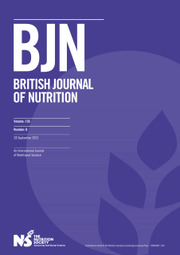
2019 British Journal of Nutrition
Higher carrot consumption is associated with a lower risk of developing lung cancer, particularly adenocarcinoma.
Systematic Review Adenocarcinoma Carrot Lung Cancer
Is carrot consumption associated with a decreased risk of lung cancer? A meta-analysis of observational studies
Xu H, Jiang H, Yang W, Song F, Yan S, Wang C, et al.
Review Articles
Review articles summarise and critically evaluate the current state of research on a specific topic or field by synthesising multiple primary research studies.

Carrot intake is consistently negatively associated with cancer incidence: A systematic review and meta-analysis of prospective observational studies
2023 Dec 17 Critical Reviews in Food Science and Nutrition Ojobor CC, O’Brien GM, Siervo M, Ogbonnaya C, Brandt K
Meta-Analysis Systematic Review Cancer CarrotConsuming carrots can significantly decrease the risk of cancer.

Ginger on Human Health: A Comprehensive Systematic Review of 109 Randomized Controlled Trials
2020 Jan 6 Nutrients Anh NH, Kim SJ, Long NP, Min JE, Yoon YC, Lee EG, et al.
Systematic Review Ginger Digestive Health Anti-Inflammatory Bowel Cancer Morning SicknessGinger has been effective in a majority of studies, including those that examined the alleviation of nausea and vomiting of pregnancy, digestive function, improvement in the expression level of markers for colorectal cancer risk, and anti-inflammatory functions.

Is carrot consumption associated with a decreased risk of lung cancer? A meta-analysis of observational studies
2019 Sep 14 British Journal of Nutrition Xu H, Jiang H, Yang W, Song F, Yan S, Wang C, et al.
Systematic Review Meta-Analysis Carrot Lung Cancer AdenocarcinomaHigher carrot consumption is associated with a lower risk of developing lung cancer, particularly adenocarcinoma.

Coffee Consumption and Risk of Colorectal Cancer: A Systematic Review and Meta-Analysis of Prospective Studies
2019 Mar 24 Nutrients Sartini M, Bragazzi N, Spagnolo A, Schinca E, Ottria G, Dupont C, et al.
Systematic Review Meta-Analysis Coffee Colorectal Cancer Bowel CancerCoffee consumption shows a protective effect against colorectal and colon cancers, particularly among US subjects and European men.
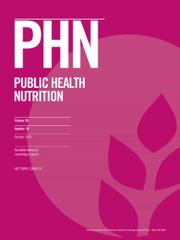
Apple intake and cancer risk: a systematic review and meta-analysis of observational studies
2016 Mar 22 Public Health Nutrition Fabiani R, Minelli L, Rosignoli P
Systematic Review Meta-Analysis Cancer AppleEating apples appears to be linked to a reduced risk of cancer in various parts of the body.
Clinical Trials
Clinical trials are research studies that involve people and are conducted to evaluate the safety and efficacy of new treatments or interventions, such as drugs, medical devices, or behavioural therapies.
Study Protocols
Published study protocols are detailed plans that outline the objectives, methodology, statistical analyses, and organisation of a research study that have been made publicly available for others to review and use as a reference.
Presentation Slides

Meta-Analysis
Consuming carrots can significantly decrease the risk of cancer.
Ojobor CC, O’Brien GM, Siervo M, Ogbonnaya C, Brandt K

Cohort Study
Regular consumption of raw carrots is associated with a significant, dose-dependent reduction in lung cancer incidence, suggesting a potential cancer-protective effect attributed to polyacetylenic compounds, particularly falcarinol and falcarindiol, present in raw carrots.
Deding U, Baatrup G, Kaalby L, Kobaek-Larsen M

Meta-Analysis
Coffee consumption shows a strong association with decreased risk of liver and endometrial cancer.
Zhao LG, Li ZY, Feng GS, Ji XW, Tan YT, Li HL, Gunter MJ, Xiang YB

Systematic Review
Ginger has been effective in a majority of studies, including those that examined the alleviation of nausea and vomiting of pregnancy, digestive function, improvement in the expression level of markers for colorectal cancer risk, and anti-inflammatory functions.
Anh NH, Kim SJ, Long NP, Min JE, Yoon YC, Lee EG, Kim M, Kim TJ, Yang YY, Son EY, Yoon SJ, Diem NC, Kim HM, Kwon SW.

Systematic Review
Higher carrot consumption is associated with a lower risk of developing lung cancer, particularly adenocarcinoma.
Xu H, Jiang H, Yang W, Song F, Yan S, Wang C, Fu W, Li H, Lyu C, Gan Y, Lu Z

Systematic Review
Coffee consumption shows a protective effect against colorectal and colon cancers, particularly among US subjects and European men.
Sartini M, Bragazzi N, Spagnolo A, Schinca E, Ottria G, Dupont C, Cristina M

Systematic Review
Eating apples appears to be linked to a reduced risk of cancer in various parts of the body.
Fabiani R, Minelli L, Rosignoli P
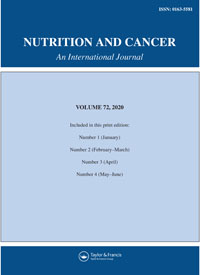
Clinical Study
Pomegranate juice consumption slightly decreases estrone and testosterone levels in normal weight postmenopausal women.
Kapoor R, Ronnenberg A, Puleo E, Chatterton Jr. RT, Dorgan JF, Seeram NP, Sturgeon SR
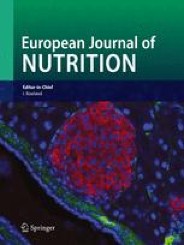
Systematic Review
Regular carrot consumption could potentially reduce the risk of prostate cancer.
Xu X, Cheng Y, Li S, Zhu Y, Xu X, Zheng X, Mao Q, Xie L
Executive Summary
Write an executive summary in the form of a blog article on the topic of "Research into Chinese medicine treatment for Cancer Risk" summarising the research below and using language that can be easily understood by patients and avoiding medical jargon using a professional and caring tone of voice.
Write an executive summary in the form of a blog article on the topic of "Researched Chinese medicine treatments for Cancer Risk" summarising the research below in an objective and easy to understand way, and using language that can be easily understood by patients. Group the article into Chinese medicine treatments first, followed by nutrition and other treatments. Avoid using medical jargon and use a professional and caring tone of voice.
Write me a concise but easy to understand executive summary on the topic of "Chinese medicine treatments for Cancer Risk" based on the following research that I will give you. Your summary should be 2 paragraphs long in Australian English spelling and include references to the studies.
A Meta-Analysis published in 2023 in the journal Critical Reviews in Food Science and Nutrition found that Consuming carrots can significantly decrease the risk of cancer. The methodology used in this research involved examining the links between carrot intake and the incidence of cancer. The scope was broad, examining all studies published before June 2022 that offered risk estimates connecting cancer incidence with either carrot consumption, α-carotene intake, or α-carotene plasma levels. Possible sources of such studies included those found via digital searches, manually identified within other studies, or garnered from existing reviews. Analysis was carried out comparing the highest and lowest reported intakes from prospective studies, estimating summary relative risks using a random-effects model. The study's results indicated a strong correlation between carrot consumption and a notable reduction in cancer risk. This conclusion was derived from the analysis of 198 observational studies, 50 of which were prospective studies involving a total of 52,000 cases that specifically recorded carrot intake. Comparatively, on the correlation between α-carotene plasma levels and cancer risk, analysis from 30 prospective studies with 9,331 cases indicated that a higher presence of α-carotene also resulted in decreased cancer risk. Despite a moderate variance between studies, these findings serve as significant evidence in support of the anticancer benefits of carrots.
A Cohort Study published in 2023 in the journal Nutrients found that Regular consumption of raw carrots is associated with a significant, dose-dependent reduction in lung cancer incidence, suggesting a potential cancer-protective effect attributed to polyacetylenic compounds, particularly falcarinol and falcarindiol, present in raw carrots. This research involved a long-term study of 55,756 Danish citizens over a period of more than 25 years. The focus was on investigating the relationship between regular consumption of raw carrots and the development of various cancers, predominantly adenocarcinomas and leukemia. The study assessed whether the frequency of carrot consumption influenced the incidence of lung, pancreatic, breast, prostate cancer, and leukemia. Additionally, it compared the effects of eating raw versus processed carrots. The study found that eating raw carrots regularly was associated with a reduced occurrence of lung cancer. This link was less clear for pancreatic cancer and non-existent for breast and prostate cancer. The research suggested that the cancer-preventive properties of raw carrots could be attributed to specific compounds, namely falcarinol and falcarindiol. These compounds are not present in cooked carrots. This significant finding points towards the potential of raw carrots in cancer prevention, particularly for lung cancer.
A Meta-Analysis published in 2020 in the journal BMC Cancer found that Coffee consumption shows a strong association with decreased risk of liver and endometrial cancer. The randomized umbrella review included a total of 28 individual meta-analyses and 36 summary associations for 26 different types of cancer. In order to collect this data, a variety of databases like PubMed, Embase, Web of Science and the Cochrane database were searched to find systematic reviews and meta-analyses of relationships between coffee consumption and cancer incidence. The summary effect size was estimated for each association using both the fixed and random effects model. A detailed evaluation of heterogeneity, small-study effects, and excess significance bias was also carried out. The results showed 17 out of 28 meta-analyses to be significant. For the highest versus the lowest categories, 4 out of 26 associations showed a more stringent value. There were notable dose-response associations for five types of cancer. Majority of the studies (69%) displayed low heterogeneity. There was evidence of excessive significance bias and publication bias in three and six associations respectively. Data exhibited that coffee intake was inversely proportional to the risk of contracting liver and endometrial cancer. All this remained constant even when the analysis was restricted only to the meta-analysis of cohort studies.
A Systematic Review published in 2020 in the journal Nutrients found that Ginger has been effective in a majority of studies, including those that examined the alleviation of nausea and vomiting of pregnancy, digestive function, improvement in the expression level of markers for colorectal cancer risk, and anti-inflammatory functions. Ginger is a natural spice that is used in diverse regions to add a pungent flavor to food. Furthermore, ginger has been used as an herbal medicine for common health problems. This systematic review is the first study that has exclusively collected RCTs regarding the efficiency of ginger in several human health conditions. The clinical effects of ginger have been introduced as six subsections: nausea and vomiting, gastrointestinal function, pain, inflammation, metabolic syndromes, and other symptoms. Reportedly, ginger has been effective in a majority of studies, including those that examined the alleviation of nausea and vomiting of pregnancy, digestive function, improvement in the expression level of markers for colorectal cancer risk, and anti-inflammatory functions. Several other functions have also been regarded as beneficial in trials, with some confronting results. However, a few drawbacks regarding the quality of the trials, inconsistent evaluation systems or parameters, and the generally small size of the studies need to be noted. Therefore, systematically designed research with detailed descriptions of methodology and a sufficient pool of participants is necessary for future clinical trials to address the functional characteristics of ginger.
A Systematic Review published in 2019 in the journal British Journal of Nutrition found that Higher carrot consumption is associated with a lower risk of developing lung cancer, particularly adenocarcinoma. The researchers carried out a meta-analysis of both case-control and prospective cohort studies. They executed a thorough search of PubMed and Embase databases from inception until April 2018 without limiting language. The studies included in their analysis were ones that reported odds ratios or relative risk for lung cancer risk within the highest and lowest categories of carrot consumption. The analysis incorporated a total of eighteen eligible studies that encompassed 17 case-control studies and one cohort study, involving 202,969 individuals and 5,517 lung cancer patients. The meta-analysis of the combined eighteen studies showed a significant association between higher carrot consumption and reduced risk of lung cancer. Subgroup analysis for different types of lung cancer showed that this association was especially pronounced for adenocarcinoma. Despite testing the robustness of their results by excluding each study one by one, the fundamental result regarding the protective effect of carrot intake against lung cancer remained unchanged. The comprehensive synthesis of observational studies therefore suggested that higher carrot consumption might serve as a preventative measure against lung cancer, notably adenocarcinoma.
A Systematic Review published in 2019 in the journal Nutrients found that Coffee consumption shows a protective effect against colorectal and colon cancers, particularly among US subjects and European men. A systematic review and meta-analysis of 26 prospective studies was conducted to explore the relationship between coffee consumption and the risk of colorectal cancer. The studies included in the review were appraised for their quality using the Newcastle-Ottawa Quality Assessment Scale for Cohort studies, with only one study deemed to be of low quality. The analysis was stratified by ethnicity to determine if this variable could explain the heterogeneity of the studies. In the discussion of the results, it was found that while coffee consumption didn't show a significant relationship with colorectal cancer overall, when stratified for ethnicity, a protective effect emerged in US subjects. This effect was especially pronounced when looking at colon cancer, with coffee showing a protective effect in men and women combined, and in men alone. When examined by ethnicity, there was a significant protective impact in European men and Asian women. However, there was no significant association found with rectal cancer. Decaffeinated coffee also exhibited a protective effect against colorectal cancer in both men and women combined.
A Systematic Review published in 2016 in the journal Public Health Nutrition found that Eating apples appears to be linked to a reduced risk of cancer in various parts of the body. The method applied in this research involved identifying relevant observational studies through a literature search of databases such as PubMed, Web of Science and Embase. Then, a random-effect model was utilized to estimate the cancer risk in different anatomical sites. Moreover, tests were conducted to assess between-study heterogeneity and publication bias. In the discussion of results, forty-one studies were considered, including varied cancer types and sources. A significant reduction of lung cancer risk was observed in relation to high apple consumption in both case-control and cohort studies. However, in the cases of colorectal, breast, and overall digestive tract cancers, significant preventative effect of apples was only found in case-control studies, while prospective studies suggested no effect. There was no evidence of publication bias for colorectal, oral cavity, oesophageal and breast cancer, but the presence of some potential confounding effects related to consumption of other fruits has been recognized.
A Clinical Study published in 2015 in the journal Nutrition and Cancer found that Pomegranate juice consumption slightly decreases estrone and testosterone levels in normal weight postmenopausal women. In this study, 64 healthy postmenopausal women were randomly assigned to consume 8 ounces of either 100% commercial pomegranate juice or apple juice daily for a period of 3 weeks. The aim was to observe the effect of pomegranate juice intake on the serum levels of various sex hormones and sex hormone-binding globulin. Despite no significant alterations observed in the serum sex hormones or SHBG overall, a subgroup analysis of 38 normal weight participants indicated a significant reduction in estrone and testosterone levels for those who consumed pomegranate juice compared to the control group. The decrease was seen only in this subgroup, and not in the total group of participants. Hence, the direct effect of pomegranate juice on hormonal levels may be more apparent in normal weight postmenopausal women.
A Systematic Review published in 2014 in the journal European Journal of Nutrition found that Regular carrot consumption could potentially reduce the risk of prostate cancer. The study methodology entailed conducting an extensive literature search of papers published in August 2013 via various academic databases as well as scanning references from retrieved articles. Key focus was given toward summary risk estimates for individuals with the highest versus the lowest intake of carrots. A vital component of the study was the conducting of a dose-response meta-analysis for those studies that reported categorical risk estimates for a range of exposure levels. The study's findings suggest a statistically considerable lower risk of prostate cancer in connection with carrot consumption, being deemed significant even after testing for publication bias. Furthermore, a dose-response meta-analysis proposed that a weekly serving, or an incremental daily intake of 10 grams of carrots, contributed to the decreased risk estimate of prostate cancer. The application of Begg's funnel plot and Egger's test indicated that the publication bias was not statistically significant.
Moderation Tools
Topic
Sign In
Users not signed in are limited to viewing the 5 most recent items of content.